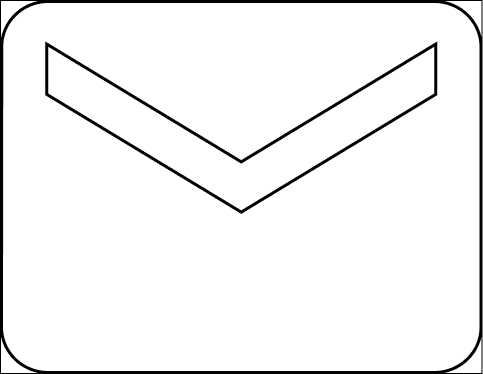Author:
James Hipkin
Publish Date:
July 13, 2023
In today’s fast-paced world, where success is often measured by achievements and outcomes, having the appropriate guidance is essential. Whether aiming to improve our businesses, navigating career transitions, or striving for personal development, making the right choice, a coach or a consultant can make all the difference.
But there’s a lot of fuzziness around coaches and consultants. What are they really? The terms are often used as synonyms. Is this correct?
This makes choosing the right resource, a coach or a consultant, a daunting exercise.
This article aims to help you make the best decision for your situation. It will explore the distinctions between a coach and a consultant, and armed with this information; you will be set to make the right decision for your specific needs.
Coach or Consultant – Let’s Define What They Are
First, let’s address the idea that they are the same. They aren’t. They are two distinct professionals who offer unique approaches to support and guidance. Understanding what makes them unique, their approach, the roles they play, and the value they bring are crucial to making the right choice for your personal or professional journey.
Broadly, coaches focus on internal human-centric matters, while consultants are focused on external business-centric factors.
Coaches

Coaches are experts in personal development and goal achievement. They work closely with individuals to provide guidance, support, and accountability throughout the process. This is a key distinction. Coaches help you find the solution within yourself.
Coaches focus on unlocking their client’s potential, exploring limiting beliefs, and helping them discover their true strengths. They create a safe and empowering environment where individuals can gain clarity, set meaningful goals, and work towards achieving them. By employing active listening, empathy, and powerful questioning techniques, coaches facilitate self-discovery and empower individuals to overcome challenges and reach their full potential.
Consultants

On the other hand, consultants are specialists who bring expertise in a particular area or industry. They offer valuable insights, analysis, and solutions based on their extensive knowledge and experience. Where a coach draws an answer from you, a consultant tells you what you should do.
Consultants are generally engaged to address specific challenges, provide strategic advice, or deliver measurable results. Their approach centers on problem-solving and delivering tangible outcomes within a defined scope. Consultants bring a wealth of industry-specific knowledge, cutting-edge methodologies, and a results-driven mindset that helps businesses overcome obstacles, optimize processes, and achieve their objectives.
As you can see, the decision between a coach and a consultant depends on your unique circumstances, goals, and preferences.
In the following sections, we will dive deeper into the key distinctions between these two roles. We’ll explore their focus, engagement scope, skillsets, and more. By understanding these differences and assessing your needs, you will be equipped to make an informed decision and choose the best guidance to support your situation.
Coach or Consultant – Understanding the Roles
To make an informed decision about which is the best fit for your needs, a coach or a consultant, it’s crucial to understand the distinct roles they play. Both professionals bring value to the conversation, but their approaches and focus areas differ significantly. Let’s dig deeper into each role.
Defining the Coach’s Role



A coach is an individual who specializes in personal development and goal achievement. Their primary objective is to guide and empower individuals on their journey toward self-improvement.
Coaches work closely with clients to create a supportive and collaborative environment where personal growth can flourish.
Coaches help individuals gain clarity about their aspirations, values, and strengths. Through active listening, empathy, and thought-provoking questioning, they facilitate self-discovery and empower clients to uncover their true potential.
Coaches act as a sounding board, offering objective perspectives and assisting individuals in setting meaningful goals that align with their values and aspirations.
One of the essential aspects of a coach’s role is to provide ongoing support and accountability. They help clients stay focused, motivated, and committed to their goals.
Coaches offer guidance in overcoming obstacles, developing action plans, and navigating personal and professional challenges. With their expertise in goal setting, personal growth strategies, and mindset development, coaches provide the necessary tools and support for clients to thrive.
Defining the Consultant’s Role






In contrast to coaches, consultants are specialists who bring a wealth of knowledge and expertise in a particular area or industry. Consultants are sought after for their ability to analyze complex situations, identify opportunities, and deliver practical solutions. They provide organizations with valuable insights, strategies, and recommendations to overcome challenges and achieve specific objectives.
Consultants typically work on a project basis, engaging with clients for a defined period to address specific issues or goals.
Their primary focus is to deliver measurable results and drive positive change.
Consultants utilize their industry-specific knowledge, methodologies, and analytical skills to assess existing processes, identify areas for improvement, and design effective strategies tailored to the client’s needs.
Consultants bring objectivity and a fresh perspective to the table. They conduct thorough research, analyze data, and provide expert advice based on their specialized experience. They guide clients through complex problems, offer actionable recommendations, and support implementation efforts. Consultants often work closely with organizations’ leadership teams, guiding them in areas such as strategy development, process optimization, market research, and more.
Understanding the roles of both coaches and consultants will help you determine which approach aligns best with your needs.
In the following sections, we will explore further distinctions between coaches and consultants, letting you decide on the approach that suits your needs.
Contrasting the Approaches
While coaches and consultants both offer guidance, their approach differs significantly in terms of their focus and engagement style.
Coaches adopt a holistic human-centered approach around growth and self-discovery. They prioritize understanding the individual, their values, beliefs, and aspirations to help them unlock their full potential.
Coaches invest time in building a relationship with their clients, fostering an environment of trust, openness, and collaboration.
Coaching often involves reflective exercises, goal-setting sessions, and regular check-ins to track progress and provide support.
On the other hand, consultants take a more targeted approach, focusing on specific challenges or objectives within a defined scope. They draw on their specialized knowledge and experience to analyze existing processes, identify inefficiencies, and propose tailored solutions.
Consultants often work closely with organizational stakeholders, conducting in-depth assessments, collecting data, and delivering strategic recommendations.
Their engagement is typically project-based, with a clear set of deliverables and defined timelines.
Skill Sets and Expertise
Coaches and consultants also bring different skill sets and areas of expertise to their roles.
Coaches excel in interpersonal skills such as active listening, empathy, and powerful questioning. They create a safe, non-judgmental space for clients to explore their thoughts, emotions, and aspirations.
Coaches deeply understand human behavior, motivation, and personal growth techniques. They guide clients in overcoming limiting beliefs, developing self-awareness, and fostering positive mindset shifts.
Consultants possess industry-specific knowledge, analytical skills, and problem-solving expertise.
They are well-versed in research methodologies, data analysis, and strategic thinking.
Consultants stay current on their fields’ latest trends, best practices, and innovations.
Their expertise allows them to offer actionable insights, develop robust strategies, and drive measurable results within client organizations.
Engagement and Outcomes






Coaches and consultants also differ in their engagement style and expected outcomes.
Coaching engagements tend to be long-term and focused on continuous personal growth. They are focused on human-centric internal issues.
Coaches establish a relationship with their clients over an extended period, offering ongoing support, accountability, and guidance.
Coaching outcomes center around self-discovery, personal empowerment, and achieving clients’ goals.
In contrast, consulting engagements are typically short-term, project-based, and results-oriented. They are focused on business-centric external factors.
Consultants collaborate closely with clients for a defined period to address specific challenges or objectives. The outcomes of consulting engagements are often tangible and measurable, such as strategy development, process optimization, increased efficiency, or improved financial performance.
Accountability and Results
Coaches provide ongoing support and accountability throughout the coaching journey. They guide clients in setting and achieving goals, holding them responsible for their progress. Coaches offer encouragement, motivation, and constructive feedback to ensure clients stay focused and committed to their personal growth. The outcomes of coaching engagements often revolve around personal empowerment, enhanced self-awareness, and the attainment of specific goals set by the client.
Consultants are accountable for delivering the agreed-upon outcomes within the project scope. They work closely with organizations to implement changes, monitor progress, and measure the impact of their recommendations. The outcomes of consulting engagements are typically more tangible and measurable, such as improved operational efficiency, increased revenue, cost savings, or enhanced market positioning.
By understanding these key distinctions between coaches and consultants, you can make an informed decision about the type of guidance that aligns best with your specific needs. Consider the focus, engagement scope, skillsets, and expected outcomes that will contribute most effectively to your personal or professional growth.
The subsequent sections will provide further insights to assist you in evaluating your requirements and making a confident choice.
Coach or Consultant – Making the Decision
When faced with the choice between a coach and a consultant, it’s essential to evaluate your specific needs and consider various factors to make an informed decision. Here are some key considerations to help you navigate the decision-making process.
Aligning Your Needs with the Roles and Distinctions
Reflect on your goals and challenges. A coach may be ideal if you’re seeking personal growth, clarity, and self-discovery.
Coaches provide ongoing support, help you set meaningful goals, and empower you to overcome obstacles.
On the other hand, if you have specific business challenges, such as process optimization or strategic decision-making, a consultant’s specialized expertise and problem-solving approach may be more beneficial.
Considering Your Personal Preferences and Learning Style
Think about your preferred style of working and learning.
Coaches typically offer a more supportive and collaborative approach, focusing on fostering a trusted relationship and helping you explore your inner potential. Coaching may be the right fit if you thrive in a dynamic, interactive environment that encourages self-reflection and growth.
Conversely, consulting may suit you better if you prefer a more structured and result-oriented approach, where expert advice and strategic recommendations are crucial.
Seeking Recommendations and Testimonials
Before you make a final decision, reach out to your network and seek recommendations from trusted sources.
Talk to individuals who have worked with coaches or consultants and gather insights into their experiences.
Reading testimonials and case studies can also provide valuable information about how these professionals impact their clients.
Use the success stories and feedback others share to better understand how each approach may align with your needs.
Coach or Consultant – What if I Need Both?
In some cases, a hybrid or blended approach may make sense. Depending on your circumstances, you may benefit from a combination of coaching and consulting. For instance, if you or your team require strategic guidance but also want to focus on personal growth, you could consider working with a consultant who incorporates coaching elements into their approach. This blended approach can offer the best of both worlds, combining expert advice with personal empowerment.
Your Circumstances Should Drive the Decision
Ultimately, the decision between a coach and a consultant depends on your unique circumstances, goals, and preferences.
Consider the distinctions between the two roles, evaluate your needs, and envision the type of support and guidance that will best propel you toward success. By aligning your requirements, considering personal preferences, seeking recommendations, and exploring hybrid options, you can confidently choose the best solution.
But don’t rush. Making this decision is an investment in your growth and success. Take the time to reflect and choose wisely because the proper guidance can make the difference between moving forward and more of the same.
Conclusion – Coach or Consultant – Which One Do You Need?
In conclusion, choosing the proper guidance for your personal and professional growth is significant. By understanding how a coach and a consultant differ, you can make an informed choice that delivers the desired results.
Coaches bring a holistic, human-centered approach to personal development. They’re focused on self-discovery, empowerment, and achieving personal goals. They do this by creating a supportive environment, utilizing their expertise in active listening, empathy, and powerful questioning to guide you toward unlocking your full potential.
Consultants, on the other hand, offer specialized knowledge and expertise in specific areas or industries. They provide business-focused strategic advice. They use their problem-solving skills and focus on measurable results to help organizations overcome challenges and achieve desired outcomes.
When making your decision, it is vital to align your needs with the roles and distinctions of a coach and a consultant. Consider your goals, challenges, and preferred learning style. Seek recommendations and testimonials from others who have experienced their services. Additionally, explore the possibility of a hybrid or blended approach if it suits your unique circumstances.
Armed with a deeper understanding of the roles, distinctions, and considerations, you are ready to make an informed decision. But remember, choosing between a coach and a consultant is a personal decision. Trust your instincts and select the approach that resonates most with your needs, aspirations, and growth objectives.
The right choice, coach or consultant, will empower you to navigate challenges, overcome obstacles, and reach new levels of success. So choose wisely, commit wholeheartedly, and watch as your personal and professional growth soars to new heights.
Profitable Google Ads – 7 Steps to a Revenue Faucet
Learn how profitable Google Ads Search campaigns are possible and likely if marketers are patient and make data-driven adjustments.
Want to Increase Marketing Effectiveness?
Maximize marketing ROI with performance tracking.
Unlock the Power of Email Marketing for Your Business
This power and importance of email marketing to your business success.
Author: James Hipkin
Since 2010, James Hipkin has built his clients’ businesses with digital marketing. Today, James is passionate about websites and helping the rest of us understand online marketing. His customers value his jargon-free, common-sense approach. “James explains the ins and outs of digital marketing in ways that make sense.”
Use this link to book a meeting time with James.


